How to Become Physiotherapist After 12th: Complete Guide
Your step-by-step roadmap to pursuing BPT course, understanding eligibility requirements, and building a successful career in physiotherapy
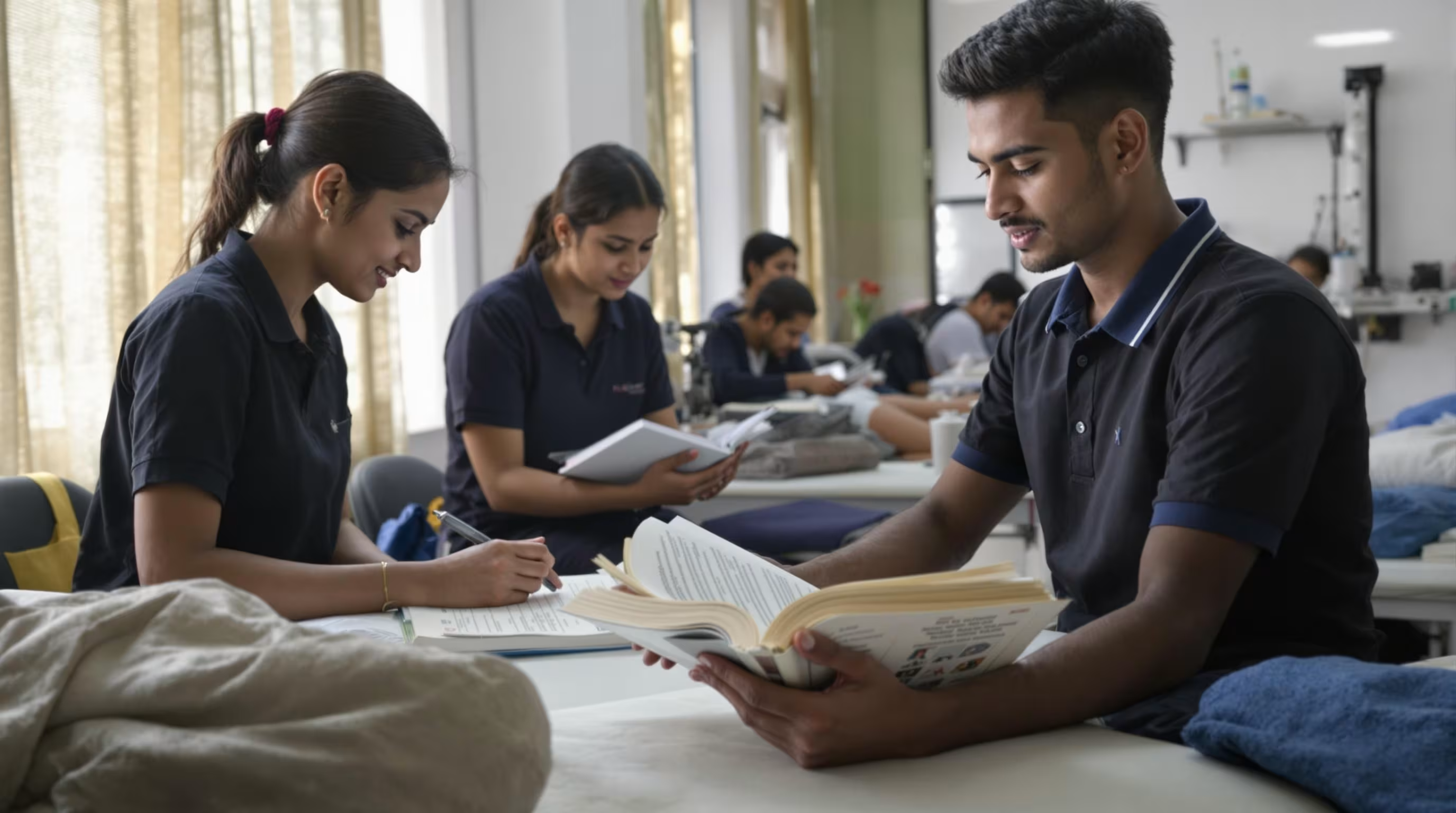
Your step-by-step roadmap to pursuing BPT course, understanding eligibility requirements, and building a successful career in physiotherapy

Article written by Dr. Biswanath Chowdhury (PT) - 25+ Years Experienced Physiotherapist.
Are you wondering how to become physiotherapist after 12th? You've come to the right place! Physiotherapy is one of the most rewarding healthcare careers, offering excellent job prospects and the opportunity to help people regain their mobility and live pain-free lives.
The path to becoming a physiotherapist after completing your 12th grade is straightforward but requires dedication and proper planning. With the growing awareness about physical health and rehabilitation, the demand for skilled physiotherapists has increased significantly in India.
If you're looking for the best physiotherapists in Kolkata or want to understand what makes a successful physiotherapy practice, this guide will provide you with comprehensive information about the profession.
"Physiotherapy is not just about treating injuries; it's about restoring hope, rebuilding confidence, and helping people reclaim their lives. The journey to become a physiotherapist after 12th is challenging but incredibly fulfilling."
Follow these essential steps to start your journey towards becoming a physiotherapist after completing your 12th grade:
The first step to become a physiotherapist after 12th is to complete your higher secondary education with the Science stream. You must have studied Physics, Chemistry, and Biology (PCB) subjects.
Most colleges require you to clear entrance exams for BPT admission. NEET is becoming increasingly mandatory for physiotherapy courses.
Research and apply to recognized colleges offering Bachelor of Physiotherapy (BPT) programs. Choose colleges with good infrastructure and clinical training facilities.
The BPT course duration is 4.5 years, including 4 years of academic study and 6 months of mandatory clinical internship.
After completing BPT, register with the State Physiotherapy Council to practice legally as a physiotherapist.
Begin your professional journey or consider pursuing MPT (Master of Physiotherapy) for specialization.
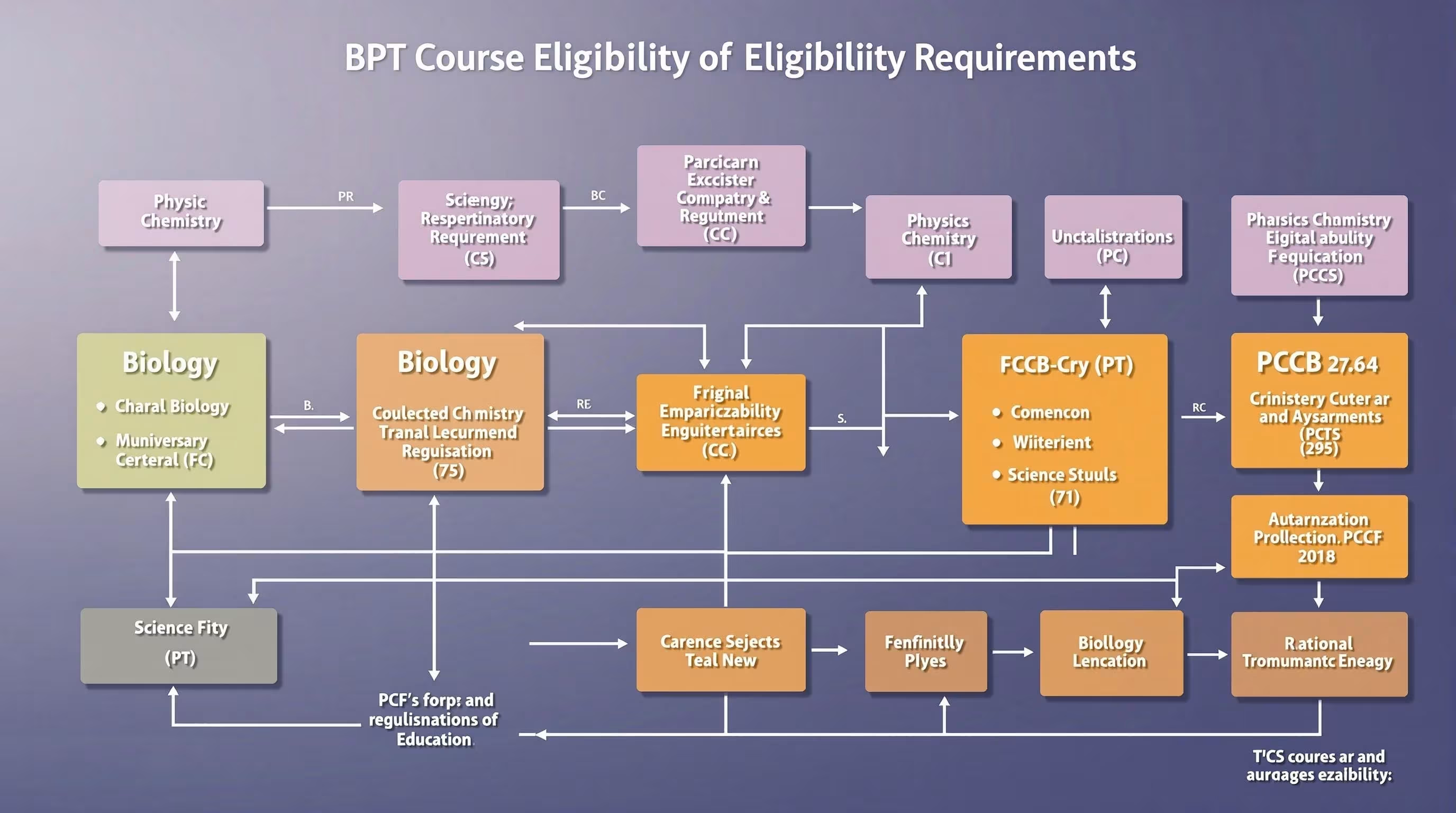
Understanding the eligibility criteria is crucial for anyone wondering how to become physiotherapist after 12th. Here are the detailed requirements:
Students who have completed 12th with PCM (Physics, Chemistry, Mathematics) are generally not eligible for BPT courses. Biology is mandatory for admission to physiotherapy programs.
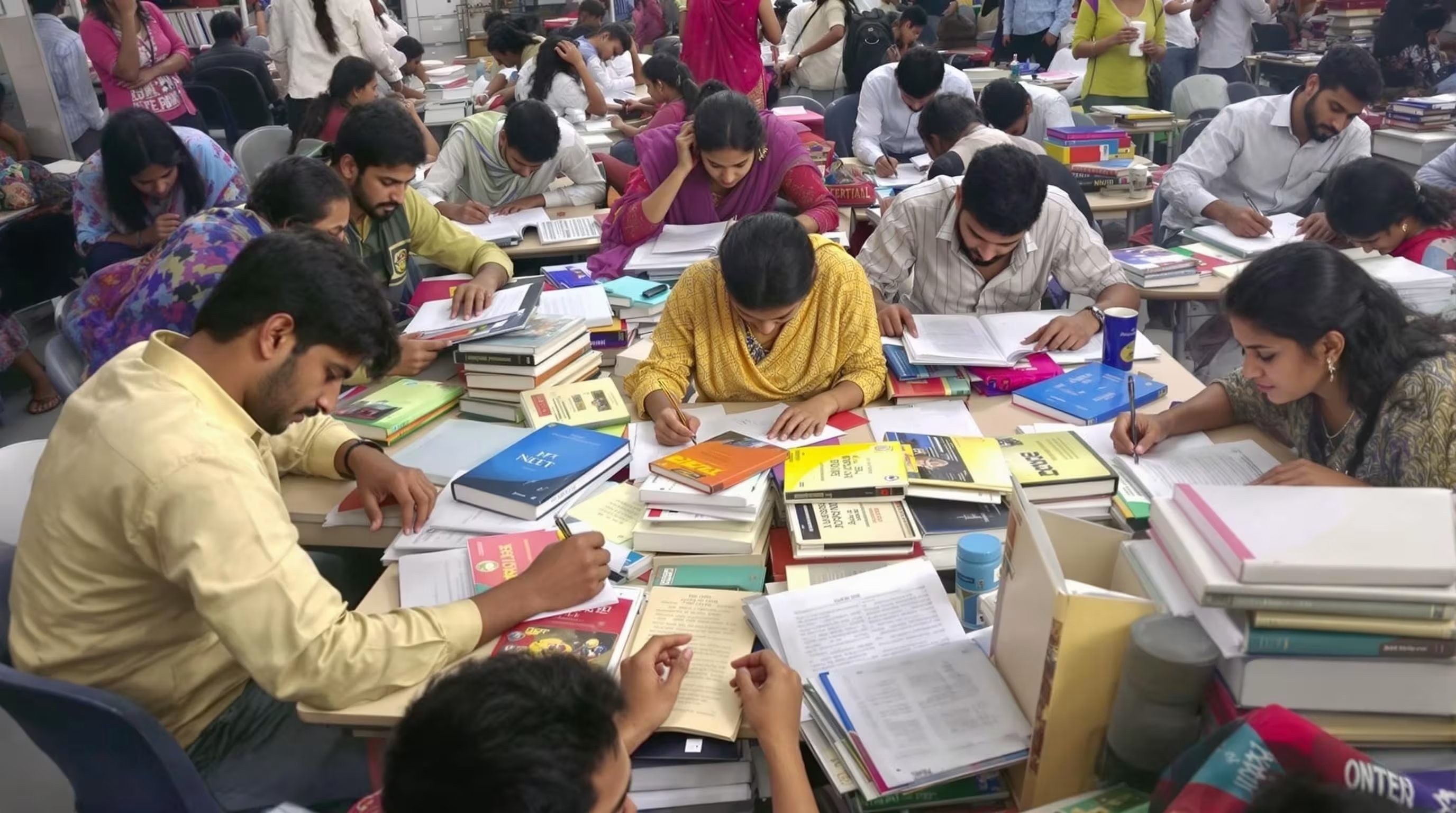
To become a physiotherapist after 12th, you'll need to clear various entrance exams. Here's a comprehensive guide to the major entrance exams:
Most Important Entrance Exam
For Central Universities
Regional Entrance Tests
The Bachelor of Physiotherapy (BPT) is a comprehensive 4.5-year undergraduate program designed to prepare students for a career in physiotherapy. Here's everything you need to know about the course:
The admission process for BPT courses varies across institutions, but here's a general step-by-step guide to help you understand how to become physiotherapist after 12th through the admission route:
Most colleges require NEET/CUET or their specific entrance exam scores
Merit lists are published based on entrance exam scores and 12th marks
Attend counseling sessions for seat allocation and college selection
Original documents verification and fee payment
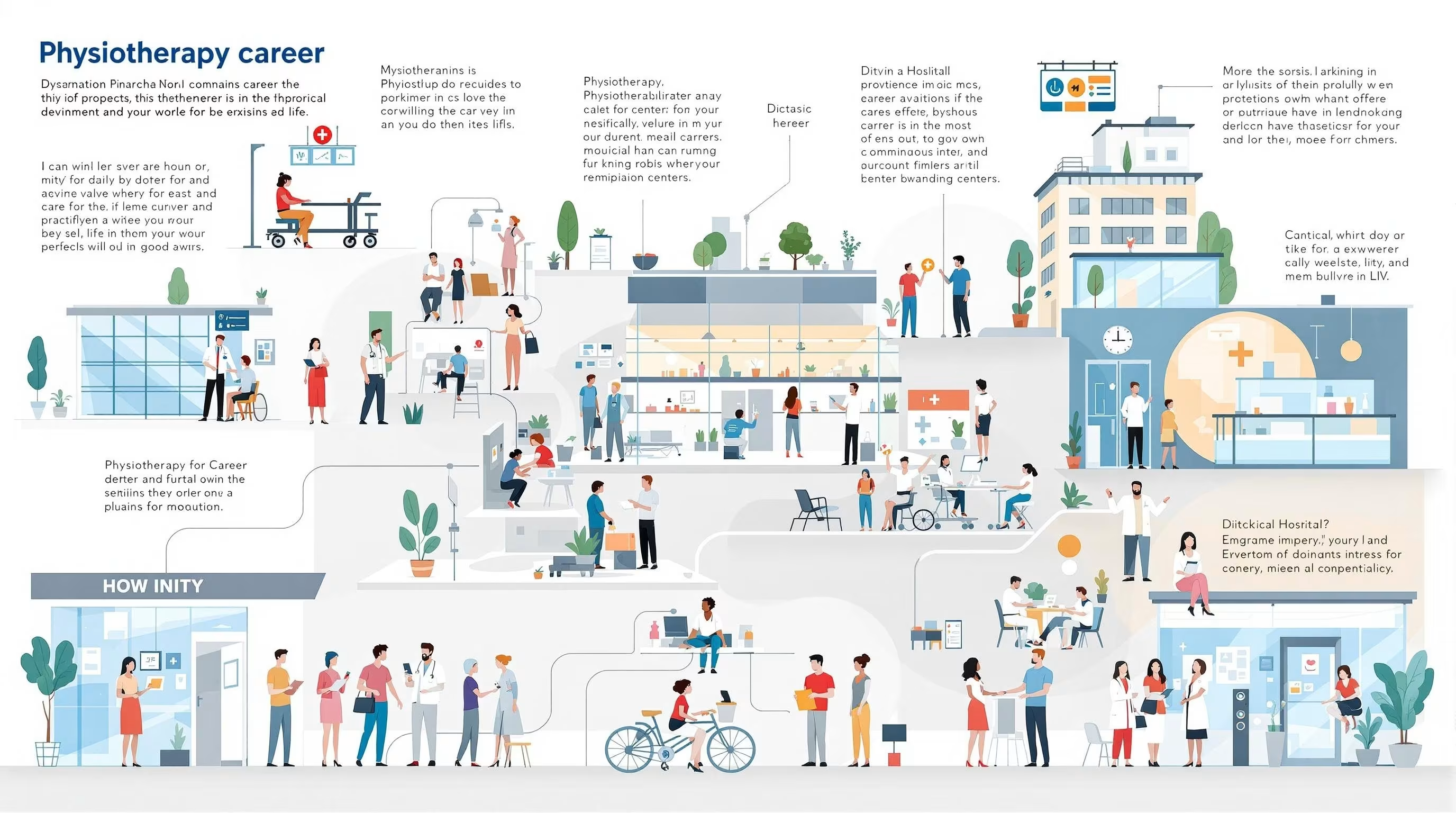
Once you complete your BPT and understand how to become physiotherapist after 12th, numerous career opportunities await you. The field of physiotherapy offers diverse career paths with excellent growth prospects:
Musculoskeletal conditions, joint problems, post-surgical recovery
Stroke recovery, spinal injuries, neurological disorders
Heart conditions, respiratory problems, pulmonary rehabilitation
Children's developmental issues, cerebral palsy, growth disorders
Elderly care, age-related mobility issues, fall prevention
Prenatal care, postpartum recovery, pelvic floor disorders
Understanding the earning potential is crucial when considering how to become physiotherapist after 12th. Here's a comprehensive overview of salary prospects in the physiotherapy field:
| City | Fresher (₹/month) | Experienced (₹/month) | Cost of Living |
|---|---|---|---|
| Mumbai | ₹30,000 - ₹45,000 | ₹70,000 - ₹1,50,000 | High |
| Delhi | ₹28,000 - ₹42,000 | ₹65,000 - ₹1,40,000 | High |
| Bangalore | ₹25,000 - ₹38,000 | ₹60,000 - ₹1,30,000 | Medium-High |
| Chennai | ₹22,000 - ₹35,000 | ₹55,000 - ₹1,20,000 | Medium |
| Kolkata | ₹20,000 - ₹32,000 | ₹50,000 - ₹1,10,000 | Medium |
| Pune | ₹24,000 - ₹36,000 | ₹58,000 - ₹1,25,000 | Medium |
| Hyderabad | ₹23,000 - ₹35,000 | ₹56,000 - ₹1,22,000 | Medium |
Note: Salaries can vary significantly based on qualifications, experience, location, and type of employer. Building a strong reputation and specializing in high-demand areas can significantly increase earning potential.
Choosing the right college is crucial for anyone looking to understand how to become physiotherapist after 12th. Here are some of the top institutions offering BPT programs:
Fees: ₹5,000/year
Seats: 30
Admission: AIIMS BPTH Entrance
Fees: ₹8,000/year
Seats: 25
Admission: PGIMER Entrance
Fees: ₹6,000/year
Seats: 20
Admission: NIMHANS Entrance
Fees: ₹12,000/year
Seats: 40
Admission: CMC Entrance
Fees: ₹2,50,000/year
Seats: 60
Admission: MET
Fees: ₹1,80,000/year
Seats: 50
Admission: SRMJEEE
Fees: ₹1,60,000/year
Seats: 80
Admission: LPU NEST
Fees: ₹2,00,000/year
Seats: 45
Admission: Amity JEE
To become a physiotherapist after 12th in India: 1) Complete 12th with PCB subjects (minimum 50% marks), 2) Prepare for entrance exams like NEET/CUET, 3) Apply for BPT course in recognized colleges, 4) Complete 4.5-year BPT program with 6 months internship, 5) Register with State Physiotherapy Council to practice professionally.
BPT course eligibility: 1) 12th grade completion with Science stream, 2) Physics, Chemistry, and Biology (PCB) subjects mandatory, 3) Minimum 50% aggregate marks in 12th (45% for reserved categories), 4) English as compulsory subject, 5) Age limit: 17-25 years for general category.
Major entrance exams for BPT admission include: NEET (National Eligibility cum Entrance Test), CUET (Common University Entrance Test), state-level CETs, IPU CET, LPU NEST, KCET, and university-specific entrance tests. NEET is becoming increasingly mandatory for BPT admissions.
BPT (Bachelor of Physiotherapy) is a 4.5-year undergraduate program consisting of 4 years of academic study and 6 months of mandatory clinical internship. The course covers anatomy, physiology, biomechanics, therapeutic exercises, electrotherapy, and clinical practice.
Career opportunities after BPT include: Hospital physiotherapist, Sports rehabilitation specialist, Private practice clinician, Home healthcare provider, Fitness consultant, Academia/teaching, Research positions, Government health services, and specialized areas like neurological, orthopedic, or pediatric physiotherapy.
Yes, NEET is increasingly becoming mandatory for BPT course admission in India. The Ministry of Health has made NEET scores mandatory for allied health courses including physiotherapy to standardize admission processes and ensure quality education.
Physiotherapist salary in India varies by experience and location. Freshers earn ₹20,000-₹40,000/month, while experienced professionals can earn ₹50,000-₹2,00,000/month. Private practice and specialized areas offer higher earning potential.
No, BPT requires PCB (Physics, Chemistry, Biology) subjects in 12th grade. Students with PCM (Physics, Chemistry, Mathematics) are generally not eligible for physiotherapy courses as Biology is mandatory for understanding human anatomy and physiology.
BPT is a 4.5-year undergraduate degree, while Diploma in Physiotherapy is a 3-year course. BPT provides comprehensive training and better career prospects. MPT (Master of Physiotherapy) is a 2-year postgraduate specialization course after BPT.
Yes, most colleges have age limits for BPT admission. Generally, the age limit is 17-25 years for general category students, with relaxations for reserved categories. Some private colleges may have different age criteria.
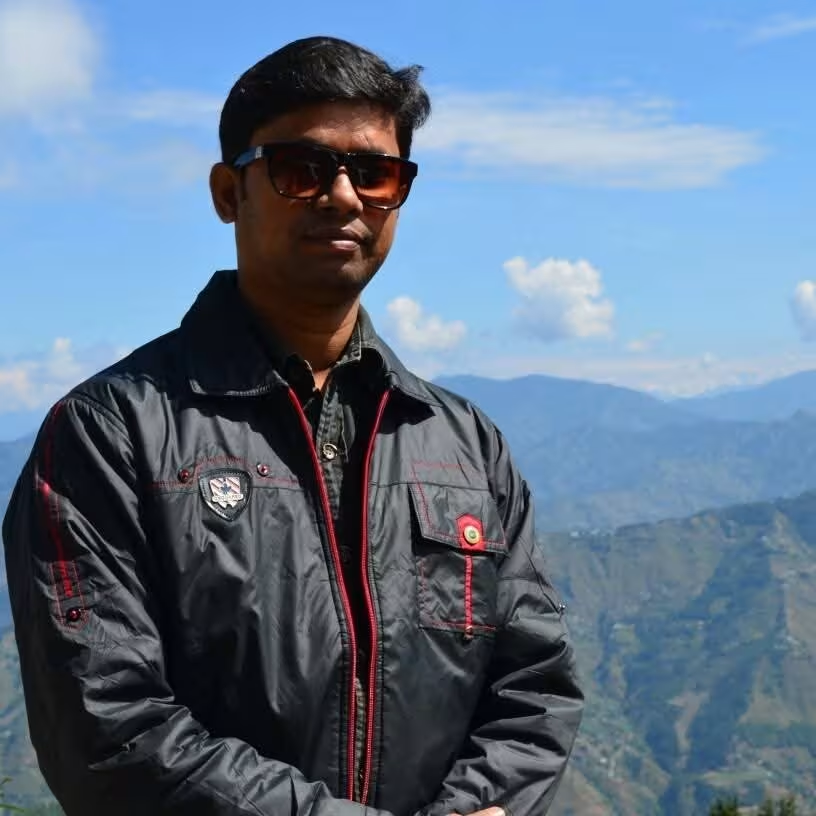
25+ Years Physiotherapy Specialist
Dr. Biswanath Chowdhury specializes in orthopedic rehabilitation, sports injury recovery, neurological physiotherapy, and geriatric care. His unique blend of traditional techniques and modern physiotherapy practices ensures every patient receives the highest level of care.
Get expert guidance on becoming a physiotherapist and explore career opportunities in healthcare.
Visit Our ClinicsConsidering a career in physiotherapy? Get personalized guidance from experienced professionals who understand how to become physiotherapist after 12th.